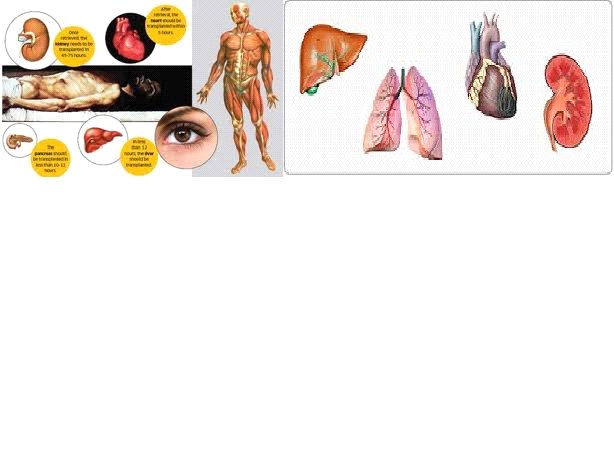FAQ's / When and which organs can be donated?
|
A patient becomes eligible for this type of donation when they are declared brain dead. Brain death may result in legal death, but still with the heart beating, and with mechanical ventilation all other vital organs may be kept completely alive and functional, providing optimal opportunities for organ transplantation. Most organ donation for organ transplantation is done in the setting of brain death. In some nations (for instance, Belgium, Poland, Portugal and France) every brain death patient is automatically an organ donor. In India consent from family members or next-of-kin is required for organ donation. The non-living donor is kept on ventilator support until the organs have been surgically removed. The length of time depends on what organs are recovered. The average length of time is four to six hours. If a brain-dead individual is not an organ donor, ventilator and drug support is discontinued and cardiac death is allowed to occur. Donation after brain death allows many different organs to be transplanted, including heart, lungs, kidneys, pancreas, liver and small intestine; Tissues include bones, tendons, cornea, skin, heart valves and veins. Worldwide, the kidneys are most commonly transplanted organs, followed closely by liver and then the heart. If someone is waiting for organ transplantation and suitable donor is not available, he/she will be placed on a waiting list to receive cadaver transplantation. 
|
